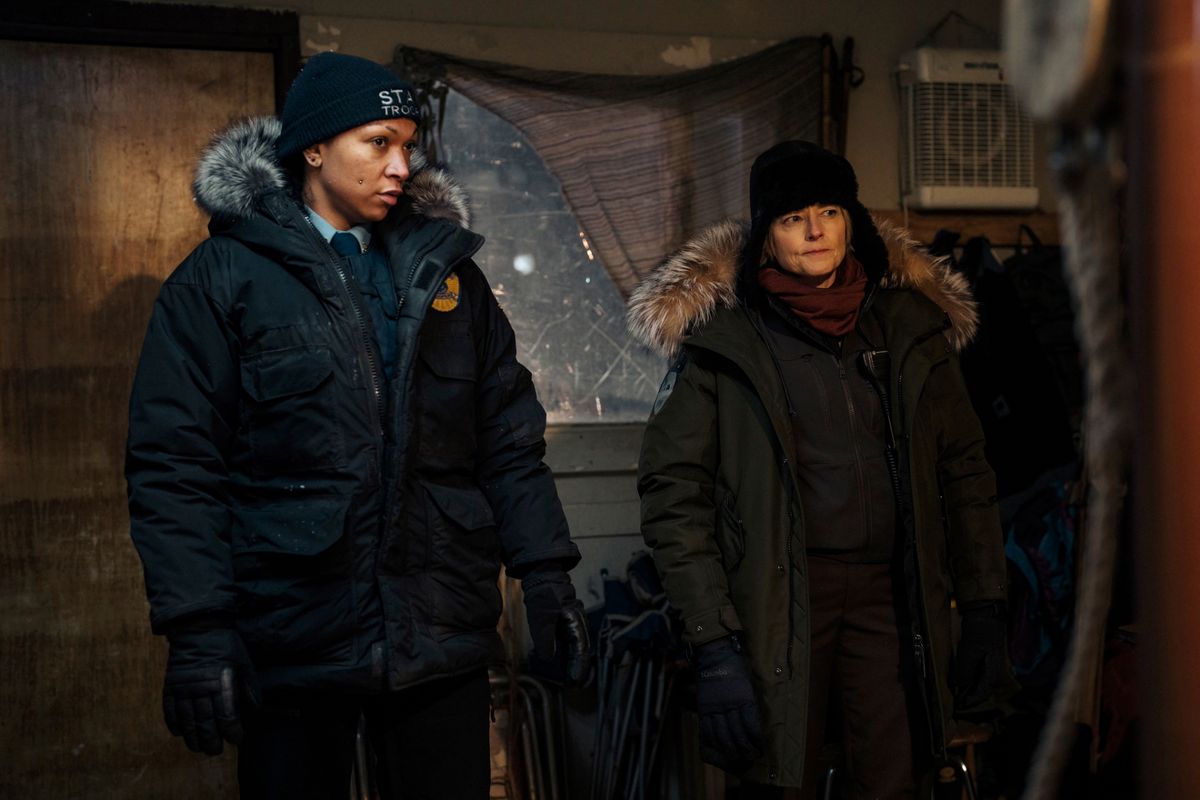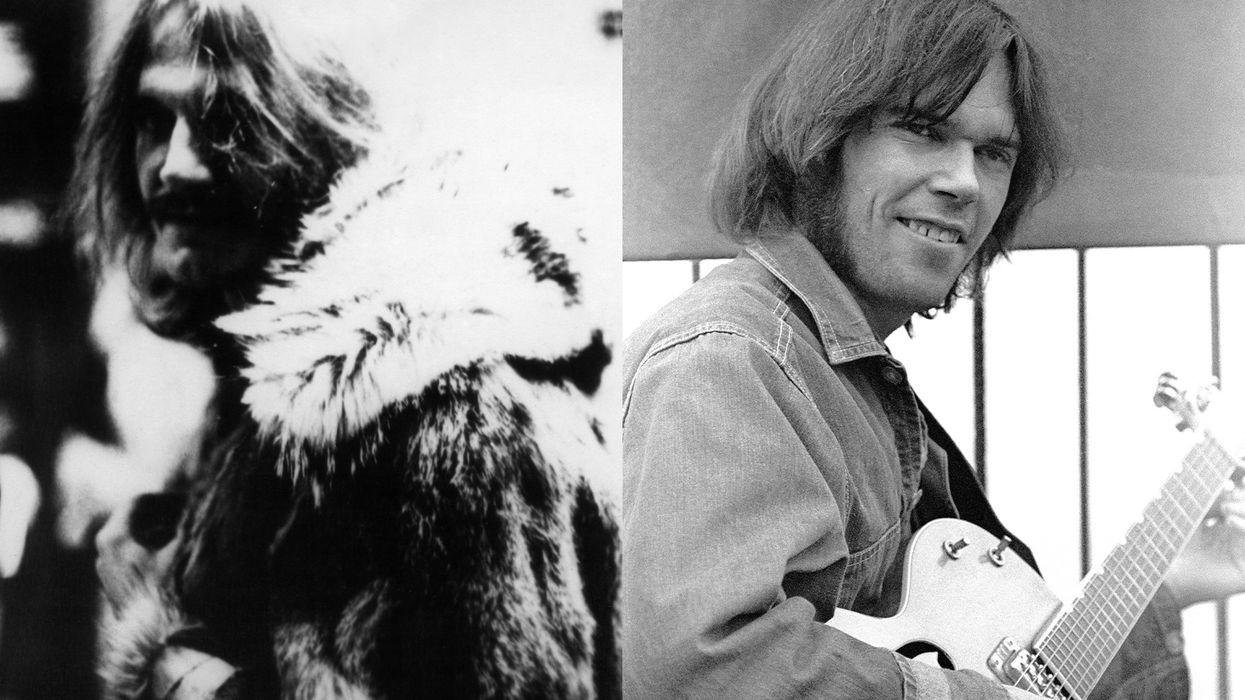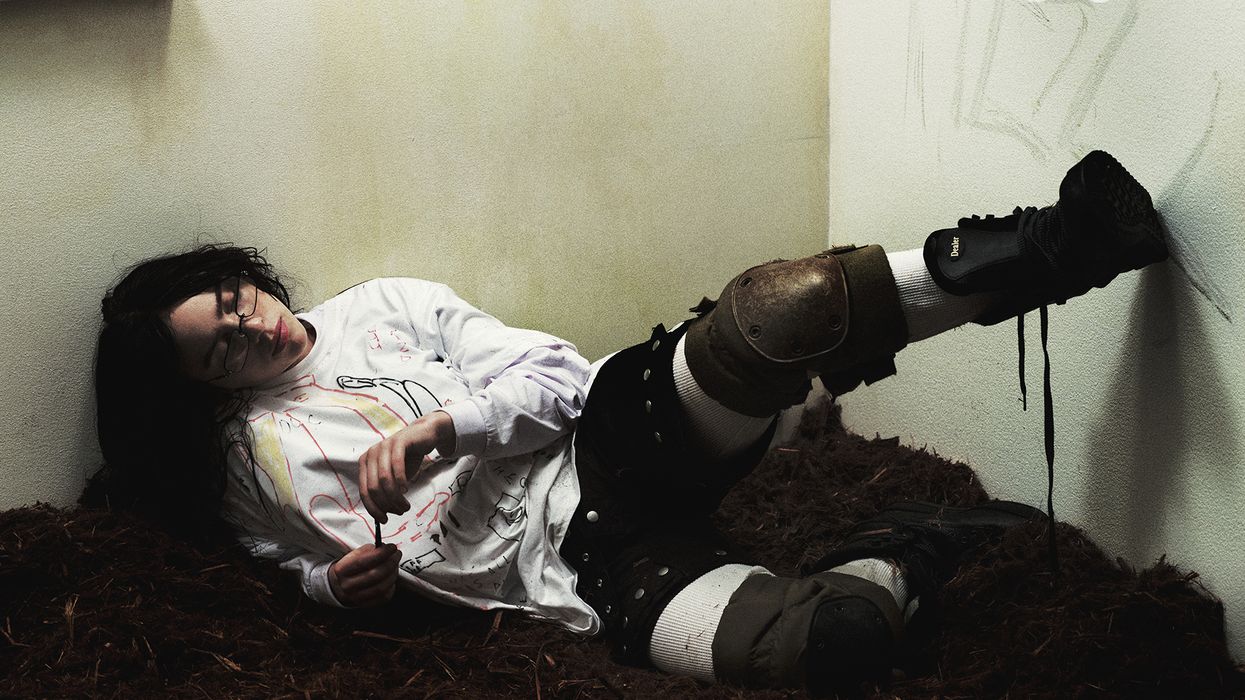This post contains spoilers for this week’s episode of True Detective: Night Country, which is now streaming on Max.
The third chapter of Night Country begins and ends with women screaming. The late Annie K is there for both scenes — the first a flashback, the second a shaky cell phone video. But in the flashback, Annie and her friends are helping women through labor at a birthing center, and the screams are part of the natural, often happy, circle of life. And in the selfie video, Annie’s screams appear to be coming at the very unnatural, terrifying, end of her own life.
In between, “Part 3” continues to gradually reveal more details about the linked investigations, and about the messy history between Danvers and Navarro. And, once again, there is a lot of ambiguity — and a lot of arguing — over how much of these events can be ascribed to normal human behavior, and how much is the result of something inexplicable. It’s all very sharp, and continues to do an effective job of building momentum and unnerving atmosphere.
The episode covers the fifth and sixth days of darkness. Without the on-screen chyrons announcing this, it would be impossible to delineate one day from the next. And without little details like Pete Prior’s son being woken up by Pete’s late-night work, it would be just as difficult to tell what time of day any of this is happening. But this is the point. When you’re in the Night Country, the weeks and days and hours all blur together, and you are trapped in what feels like a never-ending moment. It’s enough to drive anyone mad — assuming mental illness is the reason behind any of what happened to Annie, or to the Tsalal scientists.
But the hour finds interesting ways to leave this perpetual present and explore the characters’ pasts. There are flashbacks and videos, tall tales, and even dreams that expand our knowledge of who all of these people are, and how they got here, even if many of those details are only fully shared with us, rather than with the other people in Ennis. Danvers, for instance, reluctantly tells Pete about the case that caused the rift between her and Navarro, where domestic abuser William Wheeler killed his girlfriend, and then himself, before the cops could come to stop him. But as she tells this story, we see part of what really happened, and can fill in the remaining blanks: Wheeler was still very much alive when Danvers and Navarro arrived at his home, and was smugly whistling as they realized what he had done. There’s more to come here, but it seems clear that some frontier justice was executed, and that at least one of the women couldn’t abide by this.
We also learn more about the relationship between Annie K and Raymond Clark, and how it grew intense enough to worry Annie’s friend Susan. And this leads to still more evidence regarding Hank’s apparent attempts to shut down that old investigation. Not only did he steal the case file out of evidence and hide it in his house, but he took Susan’s call about Raymond and never passed the information on to Danvers or anyone else. While organizing a search party for the missing scientist, Hank acts like he’s Tommy Lee Jones having his big hero moment in the The Fugitive, but he’s inept, corrupt, or both. And when Danvers calls him on it, the best retort he can think of is to accuse his boss of trying to seduce his son(*).
(*) Again, Night Country isn’t a laugh riot, but each episode is laced with juuust enough lightness, like Pete’s confusion here about who Mrs. Robinson is. Ditto Danvers’ response to Pete assuming that she hates Navarro: “I do. I hate everyone.”
It’s an unfounded accusation, but one where you can see how the idea got into Hank’s head. As Danvers and Navarro swap insults about their respective love lives, it becomes clearer and clearer that Danvers has a long history of sleeping around, and often with married men. (She’s also not nearly as good at hiding this as she thinks, since Navarro says that everyone knows about Danvers and Ted from Anchorage.) Navarro, meanwhile, reluctantly tells Qavvik about her childhood in Boston, her abusive father, and the reason her mom brought her and Jules back to Alaska. The two cops are linked here, too, since Liz continues to be utterly disdainful of Leah’s attempts to connect with her heritage, while Navarro’s mother never told Evangeline what her Inupiaq name is. Parents treat children poorly, those children grow up to treat others poorly, and the circle continues.
Most of the time, anyway. Navarro also has a dream — or perhaps more — of Danvers’ late son, who is trying to get a message to his mommy. It’s one of many potentially supernatural moments sprinkled throughout the episode. The scientist who somehow survived being frozen finally wakes up, missing multiple limbs and his eyesight, looking and acting every bit like the pained monstrosity he’s become. And while everyone is out of the room but Navarro, he suddenly begins speaking in a different voice, as he tells her, “Hey there, Evangeline. Your mother says hello. She’s waiting for you.” Earlier, Danvers has again insisted, “There’s no magic. There’s a real explanation for this.” And perhaps there is. Navarro talks about the occasional desire to just go out on the ice and never come back, and she carries a lot of trauma regarding her mother and sisters’ illnesses; maybe the voice is just in her head, fanning the flames of that desire to end it all for herself. But the more that Issa López and company keep throwing out these hints of the otherworldly, the harder it may be for the mystery to be resolved in a wholly rational way.
Whatever’s waiting for Navarro, Danvers, and the rest, though, the journey has been riveting so far.














 Catering Presented By The Food DudesPhoto by Snapdrg0n
Catering Presented By The Food DudesPhoto by Snapdrg0n Catering Presented By The Food DudesPhoto by Snapdrg0n
Catering Presented By The Food DudesPhoto by Snapdrg0n Catering Presented By The Food DudesPhoto by Snapdrg0n
Catering Presented By The Food DudesPhoto by Snapdrg0n
 Photographer: Raphaëlle Sohier / Executive production: Elizabeth Crisante & Amanda Dorenberg / Design: Alex Filipas / Post-production: Bryan Egan/ Headpiece: Tristan Réhel
Photographer: Raphaëlle Sohier / Executive production: Elizabeth Crisante & Amanda Dorenberg / Design: Alex Filipas / Post-production: Bryan Egan/ Headpiece: Tristan Réhel Photo: Raphaëlle Sohier
Photo: Raphaëlle Sohier Photo: Raphaëlle Sohier/ Photo production: Bryan Egan/ Blazer:
Photo: Raphaëlle Sohier/ Photo production: Bryan Egan/ Blazer:  Photo: Raphaëlle Sohier/ Blazer: Vivienne Westwood/ Skirt :
Photo: Raphaëlle Sohier/ Blazer: Vivienne Westwood/ Skirt : 

